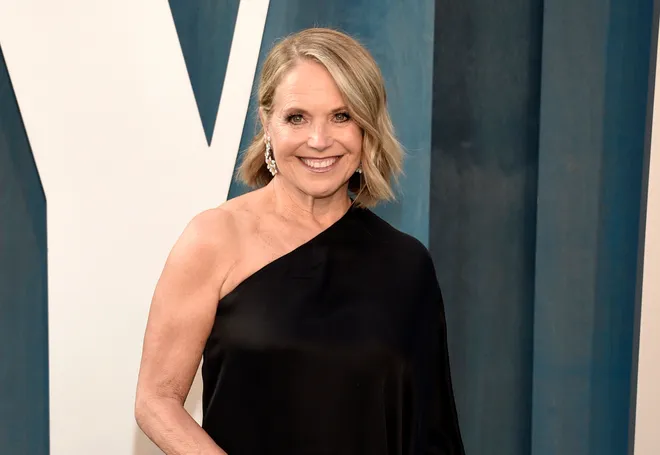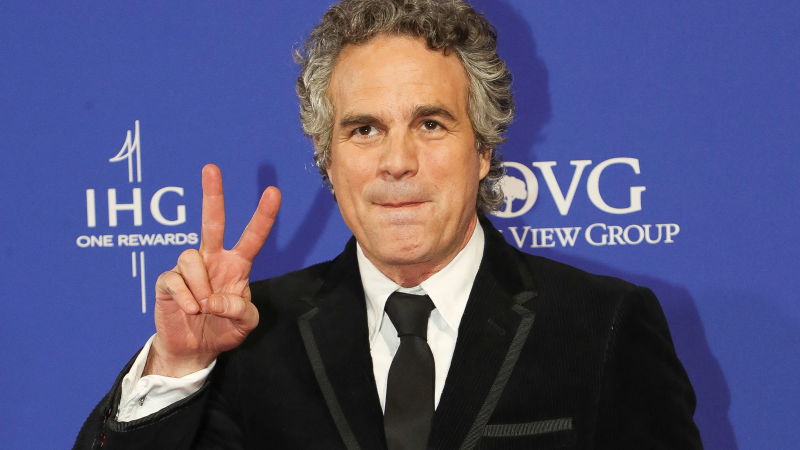Katie Couric talks colon cancer awareness, breast cancer diagnosis and becoming a grandmother
At this point, when you think about Katie Couric, you probably also think about cancer.
Between her late husband Jay Monahan's death from colon cancer at age 42 to Couric's own breast cancer diagnosis and treatment in 2022 after missing her mammogram, the 67-year-old news anchor is all too familiar with these diseases. But if she saves a life in the process – isn't that the point?
"People must roll their eyes and say, 'Oh, there she goes, again, from colons to boobs,'" she says over a Zoom call from Tuscon, Arizona, from the Cologuard Classic, a PGA TOUR Champions tournament for colon cancer awareness. "But I feel like I have an obligation. That I have an audience. They've watched me for a long time." They even watched her get a colonoscopy on the "Today" show back in 2000, two years after Monahan's death, which led to a surge in screenings dubbed the "Katie Couric Effect."
"One of the things I tried to do when I got a colonoscopy was to demystify and destigmatize the procedure and kind of take people through it," she says.

Colon cancer treatable 'if detected early'
Colon cancer specifically is the second most common cause of cancer-related deaths among both men and women combined, according to the American Cancer Society. More than 53,000 people are expected to die of the disease this year alone. And while plenty of screening tools are available – from colonoscopies to less-cumbersome stool tests like Cologuard – there's been a startling increase in diagnoses among young people.
And since there's no definitive reasoning as to why, it's best to pay attention to your body and follow screening guidelines (which should start at age 45).
"This is one cancer that can actually be stopped in its tracks if it's detected early," Couric says.
Katie Couric on grief, bittersweet feelings about becoming a grandmother
Colon cancer will always be intertwined with grief for Couric after her husband's death (she has since remarried). It's hitting harder right now as she's about to become a first-time grandmother in just a few weeks.
"These big life moments and milestones obviously make me think about Jay," Couric says. "I think about him often, but especially when our daughters are graduating from college or got a promotion or won a prize and now with our oldest daughter Ellie having a baby. It just reminds me of all the things that he has missed."
Still, she's eager to begin her role as a devoted, doting grandmother. "I'm looking forward to spending time with my grandchild and just doing the fun stuff because grandparents get to do the fun stuff." Like, you know, ice cream for breakfast (don't worry, Ellie, she's joking!).
It has also made her realize, though, how many of Earth's orbits she's gone 'round. "It reminds me that oh, holy barnyard epitaph – I'm old enough to be a grandmother," she says. "But I think I'll get over that pretty quickly. And everyone says, it's a love that's hard to describe when you see your first grandchild. And you know, when you see your baby having a baby, it's pretty miraculous."
Katie Couric:Stand Up To Cancer fundraiser 'is even more meaningful' after breast cancer diagnosis
'Getting screened is a lot easier than having advanced disease'
But people can only see their grandchildren if they get tested for diseases like colon and breast cancer in time. "What is considered a minor inconvenience can actually save their lives," she reiterates.
For colon cancer: That also means monitoring symptoms, in case they start sooner than 45 years old. For Monahan, that was 41. "We weren't really aware of the symptoms, which in retrospect, he had, bloating, unexplained weight loss, change in bowel habits," she says. Doctors must learn the signs and symptoms too. Rectal bleeding, for example, isn't always necessarily hemorrhoids. And just because someone doesn't have a family history doesn't mean they can't develop colon cancer, either.
As for breast cancer, it means staying on top of your mammograms. The COVID pandemic blew up everyone's schedules – hence Couric's six-months-late appointment. Surgery, radiation and medication saved her life, and she's now speaking out for women like her with dense breasts who might need more tests.

Her cancer awareness advocacy sits in-line with her journalism background: "Isn't that the ultimate job of a journalist, to give people information they need to have to live longer, healthier lives? I can't think of a higher calling than that, frankly."
What else can be done to increase screenings? Improving access to health care and creating as diverse a medical community as possible, Couric suggests. Also emphasizing the importance of using the tools we have available when many diseases lurk undetectable.
"Getting screened is a lot easier than having advanced disease, advanced colon cancer, advanced breast cancer; there's not screening for everything yet," she says. "But for the diseases that do have screening, it's really selfish not to take advantage of it."
'I felt sick. The room started to spin'Katie Couric reveals breast cancer diagnosis
Disclaimer: The copyright of this article belongs to the original author. Reposting this article is solely for the purpose of information dissemination and does not constitute any investment advice. If there is any infringement, please contact us immediately. We will make corrections or deletions as necessary. Thank you.







